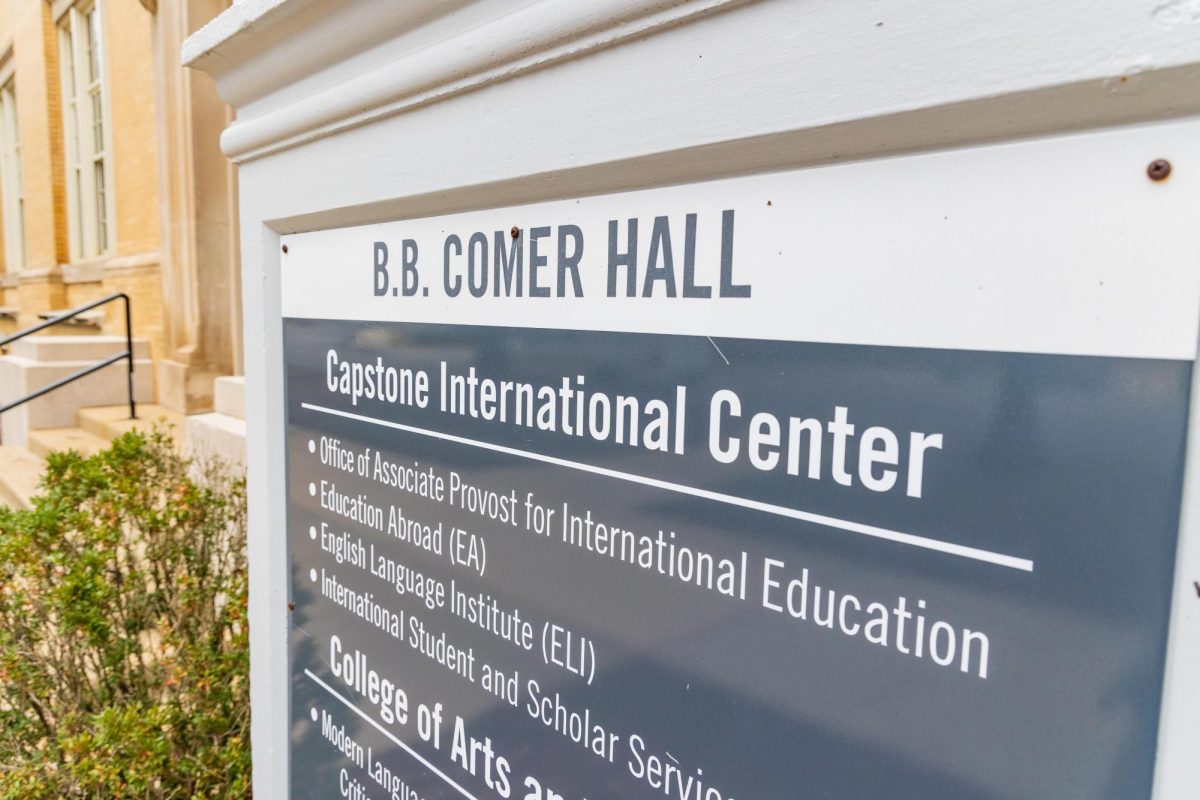State Sen. Phil Williams (R-Madison) has pre-filed “personhood” legislation for the Feb. 2012 legislative session in a move that could bring the issue of abortion to the front and center of Alabama politics just ahead of the 2012 state legislative session.
Senate Bill 5 looks to legally define humans as persons from the moment of fertilization and implantation. It is similar to Mississippi’s personhood bill, which was defeated 58 percent to 42 percent on Nov. 8.
Williams’ attempt to pass comparable legislation earlier in the year was killed by a voice vote on the Senate floor.
In an interview with Mobile news station WKRG on Nov. 9, Williams said he believes personhood legislation is important to Alabamians.
“Number one, I think that this is a matter of state’s rights, that we can do this,” Williams said. “I think that this is something that Alabamians would want.”
Leola Reis, vice president of external affairs for Planned Parenthood Southeast, said state legislators should take note that similar initiatives have failed in other states because of their extreme stance.
“In Mississippi last month and in other states, these initiatives have failed to pass as voters have indicated they are too extreme,” Reis said. “These policies do nothing to prevent unintended pregnancies or abortion. Prevention initiatives that include birth control and sex education are proven to be good for women and families and should be the focus of policy makers.”
Personhood Alabama, a state tier of the Colorado-based national Personhood group, said it is happy with efforts to ban abortion but holds a clear stance that personhood defined at implantation in SB5 is not good enough.
“Implantation in the womb, a phase that can happen five to six days after fertilization, is a small change but significant to us because it would not protect embryonic life when the egg travels down the fallopian tubes,” said Ben DuPré, an attorney with Personhood Alabama.
DuPré said fertilization is important to the pro-life group in part because of in-vitro fertilization. If IVF embryos are formed and not implanted, they will be discarded inhumanely, he said.
“We’re trying to protect all human life; we’re not trying to draw an artificial line at implantation or the heartbeat,” he said. “Unless we can prove that fertilization is not a human life, we’re going to continue to fight for that child.”
Reis said Planned Parenthood disagrees with personhood legislation’s stance against IVF and types of birth control.
“Planned Parenthood opposes ‘personhood’ initiatives as they could ban certain forms of contraception and prevent women from utilizing assisted reproductive technology,” Reis said.
DuPré said his group doesn’t find fault with physical birth control like condoms, but believes that the public misconstrues chemical birth controls.
“The morning-after pill is called emergency contraception, but that is a misconception because it flushes out a fertilized embryo,” he said.
For Reis and Planned Parenthood, the legislation is concerning because it could ban abortion without exception, even in the case of rape or medical emergency.
In medical emergencies like ectopic pregnancy, an abnormal pregnancy that occurs outside the womb where the fetus can rarely survive and can result in hemorrhage in the mother, abortions are considered to save the life of the mother.
Personhood believes the doctors should be required to attempt to save both the mother and the fetus.
“If, in trying to save both, one of them unfortunately dies, at least they tried to save both,” DuPré said. “What they shouldn’t do is say that oh, one might take the other’s life so we should affirmatively take a life. There’s actually a risk of harm in abortion as well, but why is our society so quick to recommend that course?”
For DuPré and the Alabama Personhood movement, 2012’s legislative session and Williams’ bill presents an opportunity they will continue to fight for.
“Compromise equals lives lost here,” he said.
For Reis, the legislative attempts appear misguided in troubling economic times.
“At a time of high unemployment and poor health outcomes for citizens across the southeast, we would like to see Alabama legislators do what is right and focus on the issue important to its citizens: jobs, the economy and improved health care access,” she said.








